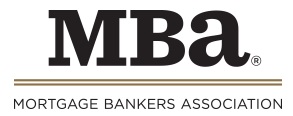WASHINGTON, D.C. – April 11, 2013 – (RealEstateRama) — Mortgage applications increased 4.5 percent from one week earlier, according to data from the Mortgage Bankers Association’s (MBA) Weekly Mortgage Applications Survey for the week ending April 5, 2013.
The Market Composite Index, a measure of mortgage loan application volume, increased 4.5 percent on a seasonally adjusted basis from one week earlier. On an unadjusted basis, the Index increased 5 percent compared with the previous week. The Refinance Index increased 6 percent from the previous week. The seasonally adjusted Purchase Index decreased 1 percent from one week earlier. The unadjusted Purchase Index decreased 1 percent compared with the previous week and was 3 percent higher than the same week one year ago.
“Although total purchase application volume fell last week, there was a significant divergence between the conventional and government markets,” said Mike Fratantoni, MBA’s Vice President of Research and Economics.” “Following the April 1 increase in FHA mortgage insurance premiums, government purchase applications fell by almost 14 percent, to their lowest level since February 2013. On the other hand, applications for conventional purchase loans increased by more than 5 percent, bringing the conventional purchase index to its highest level since October 2009 and the highest level since the expiration of the homebuyer tax credit. With these changes, the government share of all purchase loans fell to 30 percent, the lowest level since we began tracking this series in 2011.”
The refinance share of mortgage activity increased to 75 percent of total applications from 74 percent the previous week. The adjustable-rate mortgage (ARM) share of activity decreased to 5 percent of total applications. The HARP share of refinance applications increased from 28 percent last week to 30 percent this week.
The average contract interest rate for 30-year fixed-rate mortgages with conforming loan balances ($417,500 or less) decreased to 3.68 percent, the lowest rate since January 2013, from 3.76 percent, with points remaining unchanged at 0.43 (including the origination fee) for 80 percent loan-to-value ratio (LTV) loans. The effective rate decreased from last week.
The average contract interest rate for 30-year fixed-rate mortgages with jumbo loan balances (greater than $417,500) decreased to 3.79 percent, the lowest rate since January 2013, from 3.85 percent, with points decreasing to 0.36 from 0.37 (including the origination fee) for 80 percent LTV loans. The effective rate decreased from last week.
The average contract interest rate for 30-year fixed-rate mortgages backed by the FHA decreased to 3.43 percent, the lowest rate since January 2013, from 3.48 percent, with points increasing to 0.52 from 0.38 (including the origination fee) for 80 percent LTV loans. The effective rate decreased from last week.
The average contract interest rate for 15-year fixed-rate mortgages decreased to 2.92 percent, the lowest rate since January 2013, from 2.99 percent, with points decreasing to 0.34 from 0.36 (including the origination fee) for 80 percent LTV loans. The effective rate decreased from last week.
The average contract interest rate for 5/1 ARMs decreased to 2.58 percent from 2.60 percent, with points increasing to 0.37 from 0.32 (including the origination fee) for 80 percent LTV loans. The effective rate decreased from last week.
If you would like to purchase a subscription of MBA’s Weekly Applications Survey, please visit www.mortgagebankers.org/WeeklyApps, contact or click here.
The survey covers over 75 percent of all U.S. retail residential mortgage applications, and has been conducted weekly since 1990. Respondents include mortgage bankers, commercial banks and thrifts. Base period and value for all indexes is March 16, 1990=100.
###
The Mortgage Bankers Association (MBA) is the national association representing the real estate finance industry, an industry that employs more than 280,000 people in virtually every community in the country. Headquartered in Washington, D.C., the association works to ensure the continued strength of the nation’s residential and commercial real estate markets; to expand homeownership and extend access to affordable housing to all Americans. MBA promotes fair and ethical lending practices and fosters professional excellence among real estate finance employees through a wide range of educational programs and a variety of publications. Its membership of over 2,200 companies includes all elements of real estate finance: mortgage companies, mortgage brokers, commercial banks, thrifts, Wall Street conduits, life insurance companies and others in the mortgage lending field. For additional information, visit MBA’s Web site: www.mortgagebankers.org.













